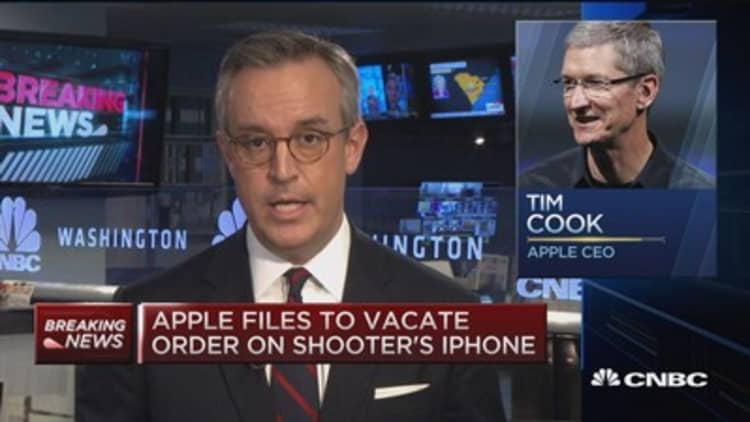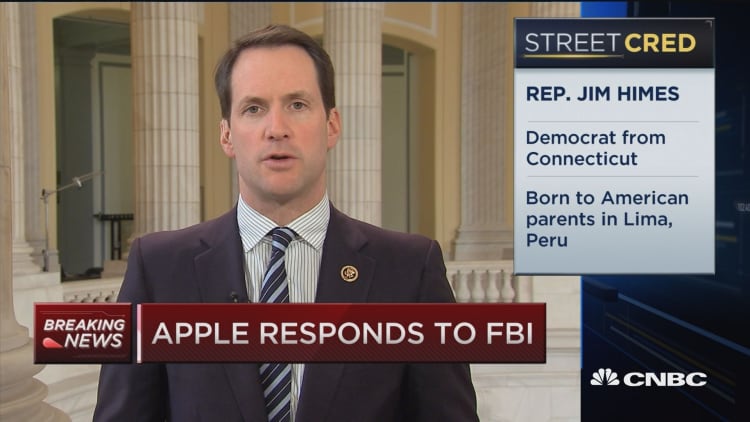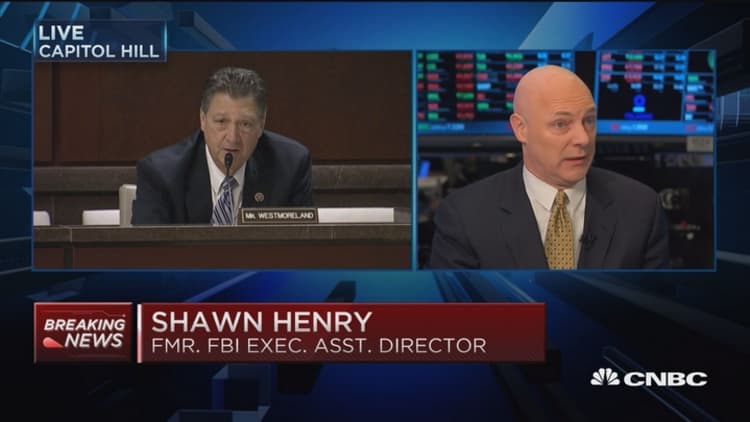


Apple filed a motion on Thursday to vacate a California judge's order compelling the company to create software that would allow FBI agents to access an iPhone used in the San Bernardino, California, terrorist attacks.
The government has said Apple must help because there is no way to get at the data on a smartphone used by San Bernardino shooter Rizwan Farook without the company engineering a special operating system. The company said, among other things, that the judge's order violates the company's First Amendment rights.
"No court has ever granted the government power to force companies like Apple to weaken its security systems to facilitate the government's access to private individuals' information," the tech giant said in a release.
On the First Amendment, Apple said that being forced to write a new set of code reflecting the government's opinion of privacy (not the company's) constitutes a violation of its rights against compelled speech and viewpoint discrimination.
Apple also said the demand violates its Fifth Amendment right to be free from arbitrary deprivation of liberties "in that it would conscript Apple to develop software that undermines the security mechanisms of its own products," the company said in a fact sheet about the motion.
In a conference call with reporters, Apple executives contended that the government is asking the court to order the company to do something that has not been authorized by Congress — something that the Department of Justice and the executive branch has shied away from.
The executives said that the FBI is employing the esoteric All Writs Act beyond its intended use, and that no court has ever authorized to government a power such as what is currently in contention.
In fact, the executives contended that the question of whether the company should be forced to create an operating system specifically for government use is a political question — not a legal one.
In its motion, Apple detailed its "substantial assistance" in the government's investigation, including furnishing "valuable informal assistance." The company, however, charged that the FBI made an error in changing the account's iCloud password, and so foreclosed the chance of accessing its data through other means.
"Had the FBI consulted Apple first, this litigation may not have been necessary," the brief said.
The executives said on the call that they have heard from a number of companies and interest groups supporting Apple's arguments, and so they expect a robust amount of amicus briefs.
Microsoft said it will file an amicus brief in support of Apple, and Google says it will also.
MIcrosoft's announcement said: "Put simply, we do not believe that courts should seek to resolve issues of 21st-century technology with law that was written in the era of the adding machine. We need 21st-century laws that address 21st-century technology issues. And we need these laws to be written by Congress."
Forty-six percent of American respondents in a national online Reuters/Ipsos poll said they support Apple's decision to oppose a federal court order demanding that it unlock the phone. On the other hand, 35 percent said they disagreed with the company and 20 percent said they did not know, according to poll results released Wednesday.
— Reuters contributed to this article.




